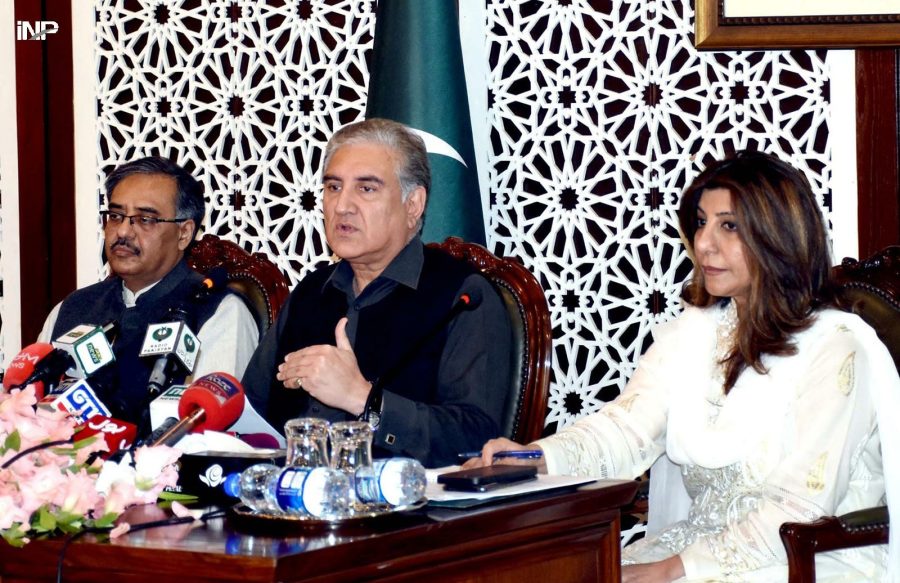Warns of spoilers who may sabotage Afghan deal
Staff Reporter
Islamabad
Foreign Minister Shah Mahmood Qureshi said on Sunday that while the peace agreement between the US and the Taliban was a welcome development, he urged all parties to be wary of the role of ‘spoilers’ who can sabotage the deal.
The foreign minister was holding a press conference at the Foreign Office, a day after he arrived from Doha. “I spoke to Secretary of State Mike Pompeo after the signing of the deal and raised four points of concern. One of the concerns was the role of spoilers which have always been present, inside and outside Afghanistan,” he said.
“We have to keep eyes on them,” Qureshi said, adding, that a mechanism must be put in place to identify those playing a negative role. “The ultimate decision will be in the hands of the Afghanistan government and a foreign actor cannot make that decision for them,” he said.
The foreign minister continued, “Yesterday’s ceremony generated a momentum which needs to be maintained. When people see the progress, the momentum will continue.” Qureshi added that he also suggested to Pompeo that there should not be much delay before the intra-Afghan dialogue takes place so that the momentum continues. “Norway has offered to host intra-Afghan dialogue but we should make sure there isn’t much delay between it. Optics are very important. Yesterday, the optics were beamed everywhere.”
On the subject of the release of the prisoners, Qureshi said there needs to be progress on the issue. “Some prisoners are with the Afghan government and some with the Taliban. We are hopeful that President Ashraf Ghani will play his role in keeping the environment healthy and understand the importance of the agreement.”
The foreign minister added the political unrest in the country must also be addressed. “We do not want to get involved in the internal politics of the country or create any hurdles. The United States can have a very important role in this.”
Qureshi added the fourth point he put forward was to mobilise international support. “Post-conflict Afghanistan construction and return of refugees is important. We want people to return to their homes safely. For that, we need international support.”
The foreign minister further said he also met with foreign ministers from Tajikistan, Uzbekistan and Turkmenistan and said that the next step should be engagement with central Asian republics. “For this to take place we should hold talks. We need to have an engagement if there is peace in Afghanistan. And secondly how through dialogue we can increase regional connectivity. I think it is appropriate we should sit with each other and hold a dialogue.”
“It has to be seen whether the Afghan leadership agrees to sit and make a political roadmap and when [they decide to do that] […] they are the ones who have to make the decision as to what kind of Afghanistan they want.
“It will be a test for the [their] leadership. How much flexibility does the Afghan government show [for negotiations], will it keep Afghan interests foremost or its own interests […] are they ready to compromise for larger interests? “Will the Taliban cut off contacts with Al-Qaeda and others, and will the world be satisfied?” he questioned.
He said the next time step would be deliberate how Pakistan can benefit from peace and stability in the region. “We also have to help contribute to ensure lasting peace is achieved.” In a question about the role of key players in the peace process, Qureshi acknowledged Russia and China favouring and facilitating the peace deal.
Answering a query regarding Ashraf Ghani’s call against releasing Taliban prisoners, Qureshi said, without naming the Afghan president, that the man had not been in favour of the peace deal from the beginning.
Responding to a question regarding India’s controversial policies, Qureshi said the Narendra Modi-led government may have succeeded in hiding the situation in Indian Occupied Jammu and Kashmir by imposing a communication and information lockdown but they could not hide the New Delhi riots.










